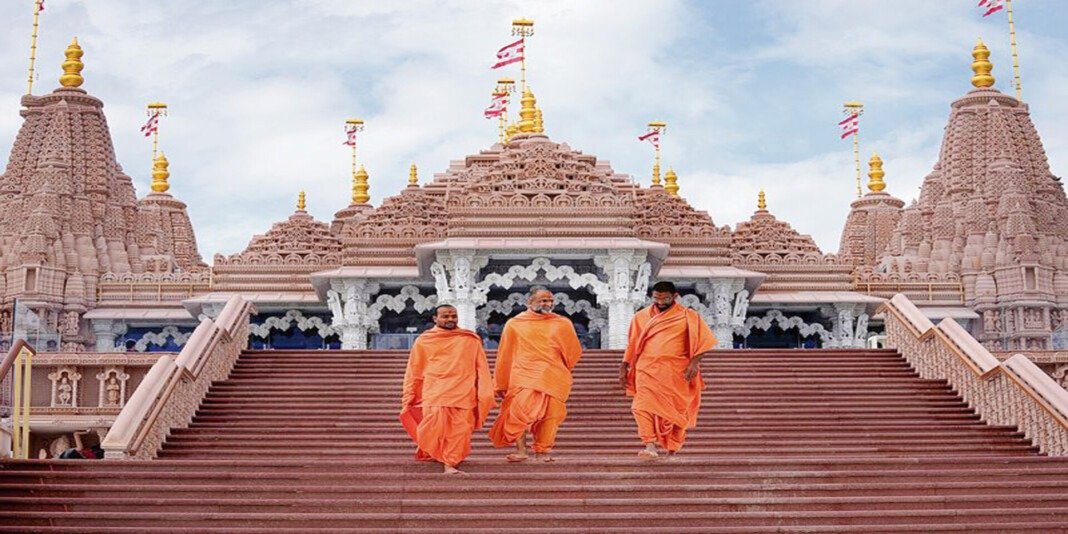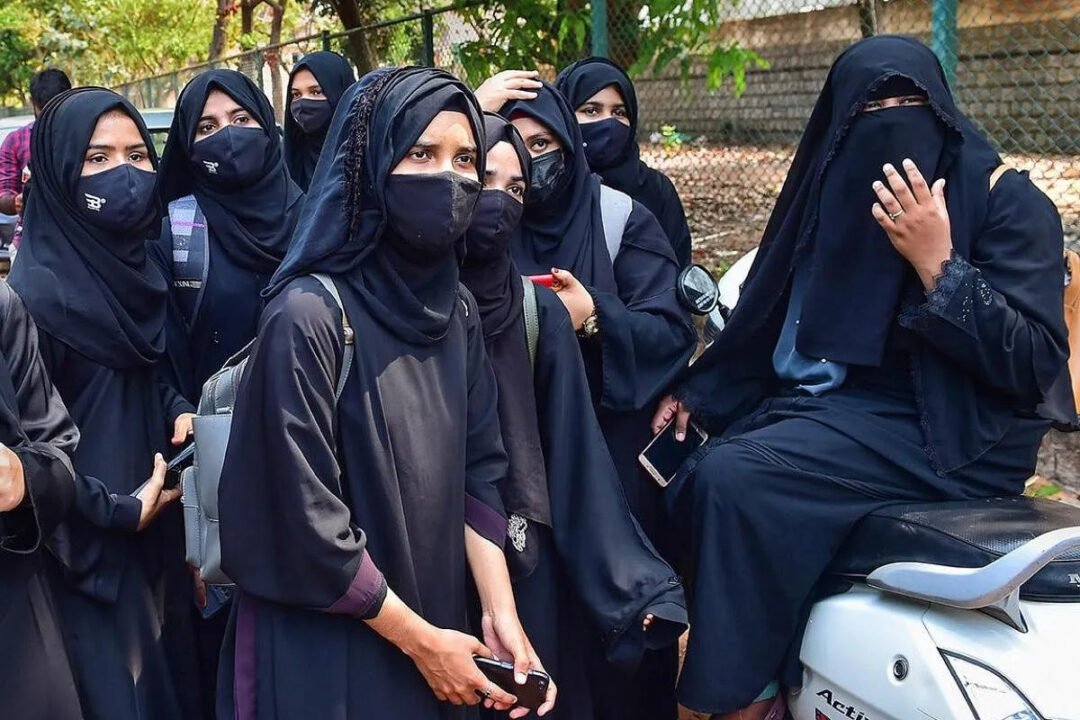By: Dipak Kurmi
Prime Minister Narendra Modi’s current visit to the UAE, where he is set to inaugurate the BAPS Hindu Mandir in Abu Dhabi today, signifies a significant milestone in a journey that commenced less than a decade ago. Back in August 2015, he undertook his inaugural visit to the Gulf nation, becoming the first Indian Prime Minister to do so since Indira Gandhi in 1981. The bilateral agenda at the time was extensive, laying the groundwork for a remarkable transformation in India’s relationship with the UAE. During this visit, Modi also took the opportunity to formally request land allocation for a Hindu temple, addressing the longstanding religious and spiritual needs of a substantial portion of the 3.5 million-strong Indian community in the UAE.
Prime Minister Narendra Modi’s ongoing trip to the UAE holds great significance as he prepares to inaugurate the BAPS Hindu Mandir in Abu Dhabi today, marking a pivotal moment in a journey that began less than a decade ago. In August 2015, he made history by becoming the first Indian Prime Minister to visit the Gulf nation since Indira Gandhi in 1981. The agenda during that visit was comprehensive, establishing the groundwork for a remarkable transformation in India’s relationship with the UAE. Within this context, Modi seized the opportunity to formally request the allocation of land for a Hindu temple, fulfilling the longstanding religious and spiritual needs of a sizable portion of the 3.5 million-strong Indian community in the UAE.
Spanning 27 acres, the majestic mandir stands tall at 108 feet, strategically situated just off the bustling Abu Dhabi-Dubai highway. It is poised to serve as a compelling visual symbol of the evolving relationship between the nations. Yet, the mandir’s presence in a once predominantly conservative Muslim nation like the UAE signifies a deeper transformation within the country. Allow me to share a brief anecdote that might shed light on this profound change.
During Modi’s visit to the UAE in February 2018, the decision was made to unveil a replica of the proposed mandir. The task of preparing the replica fell upon the BAPS leadership, who faced uncertainty regarding the temple architecture acceptable to the hosts. With limited time before the visit, I was entrusted with the responsibility to seek the views of the UAE leadership. Two models were crafted; the first embraced a classical design featuring seven shikhars, while the second proposed a more discreet temple recessed within a rectangular building. Departing from the usual protocol, Foreign Minister Sheikh Abdullah bin Zayed attended the reception I hosted for India’s 69th Republic Day. As he bid farewell, he shared positive news regarding the temple design. Following consultation with his elder brother, Sheikh Mohammed bin Zayed, their response was unequivocal: “We agreed to have a Hindu temple in Abu Dhabi, and it should look like a Hindu temple.”
The unequivocal nature of this response reflects the UAE’s steady evolution concerning religious tolerance and interfaith harmony. This transformative journey traces its roots back to the visionary founder-President Sheikh Zayed, gaining momentum particularly after the 9/11 attacks in the US in 2001. The UAE’s active participation in the US-led coalition against al-Qaeda in Afghanistan marked a crucial turning point. The momentum further accelerated post the ‘Arab Spring’ in 2011, where the UAE, in collaboration with Saudi Arabia and other allies, intervened to halt the Muslim Brotherhood-led government in Egypt. Subsequently, the UAE not only banned the Brotherhood but also labeled it a terrorist organization. Concrete measures were taken to eradicate its influence from mosques, madrasas, and educational institutions across the country. Initiatives like the Sawab Centre emerged as a strategic think tank combating terrorism and extremism rooted in the misuse of religion, while Hedayah was established as an International Centre for Excellence dedicated to countering violent extremism.
In tandem with its resolute stance against extremism, the UAE has taken affirmative actions, such as the appointment of Sheikh Nahyan bin Mubarak Al Nahyan, a prominent member of the royal family, as the Minister for Tolerance. Additionally, the nation has orchestrated prominent conferences featuring the involvement of religious leaders from across the globe, aimed at fostering interfaith harmony. During my tenure as Ambassador, I had the privilege of engaging with a more diverse array of religious leaders from India—Hindu, Sikh, Muslim, Christian, Buddhist, and Jain—than I had encountered in my previous 30 years of service. This exemplifies the UAE’s commitment to promoting diversity and understanding among various faith communities.
In a remarkable gesture of interfaith collaboration, the UAE played host to Pope Francis and Sheikh Ahmed al Tayyeb, the Grand Imam of Al Azhar, in Abu Dhabi in 2019. This historic meeting resulted in the creation of the Document of Human Fraternity, an unprecedented joint declaration representing both Catholics and Islam. Serving as a blueprint for dialogue and cooperation between the two faiths, the document laid the foundation for the House of Abrahamic Family. Situated in the Saadiyat Island cultural district of Abu Dhabi, this impressive complex encompasses a mosque, a church, and a synagogue, all coexisting within the same compound. This symbolic initiative reflects the UAE’s commitment to fostering understanding and unity among diverse religious communities.
In a significant stride towards fostering interfaith relations, the UAE took the groundbreaking step of signing the Abraham Accords in 2020, solidifying full diplomatic ties with Israel. This monumental decision has brought about notable changes, including the appointment of a Chief Rabbi in Dubai. The government’s commitment to shaping a new paradigm for interfaith relations is evident in the meticulous effort to systematically cleanse textbooks of any anti-Semitic references. These measures underscore the earnestness with which the UAE is dedicated to creating a more inclusive and harmonious environment for diverse religious communities.
The mandir in Abu Dhabi, with its profound message of establishing a spiritual sanctuary of global unity, seamlessly integrates into the UAE’s inclusive landscape. Each of its seven shikhars symbolizes one of the seven emirates of the nation, further exemplifying the mandir’s alignment with the ethos of inclusivity and unity embraced by the country. (The writer can be reached at dipaknewslive@gmail.com)







